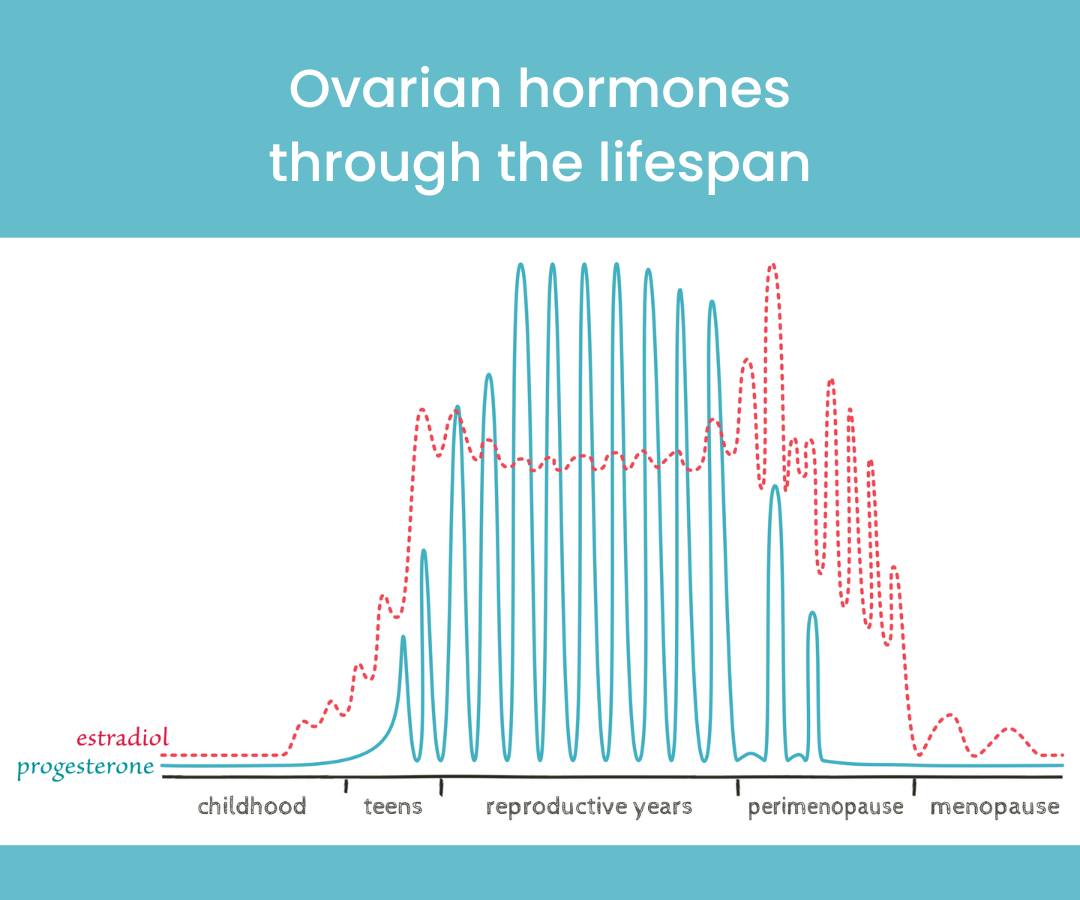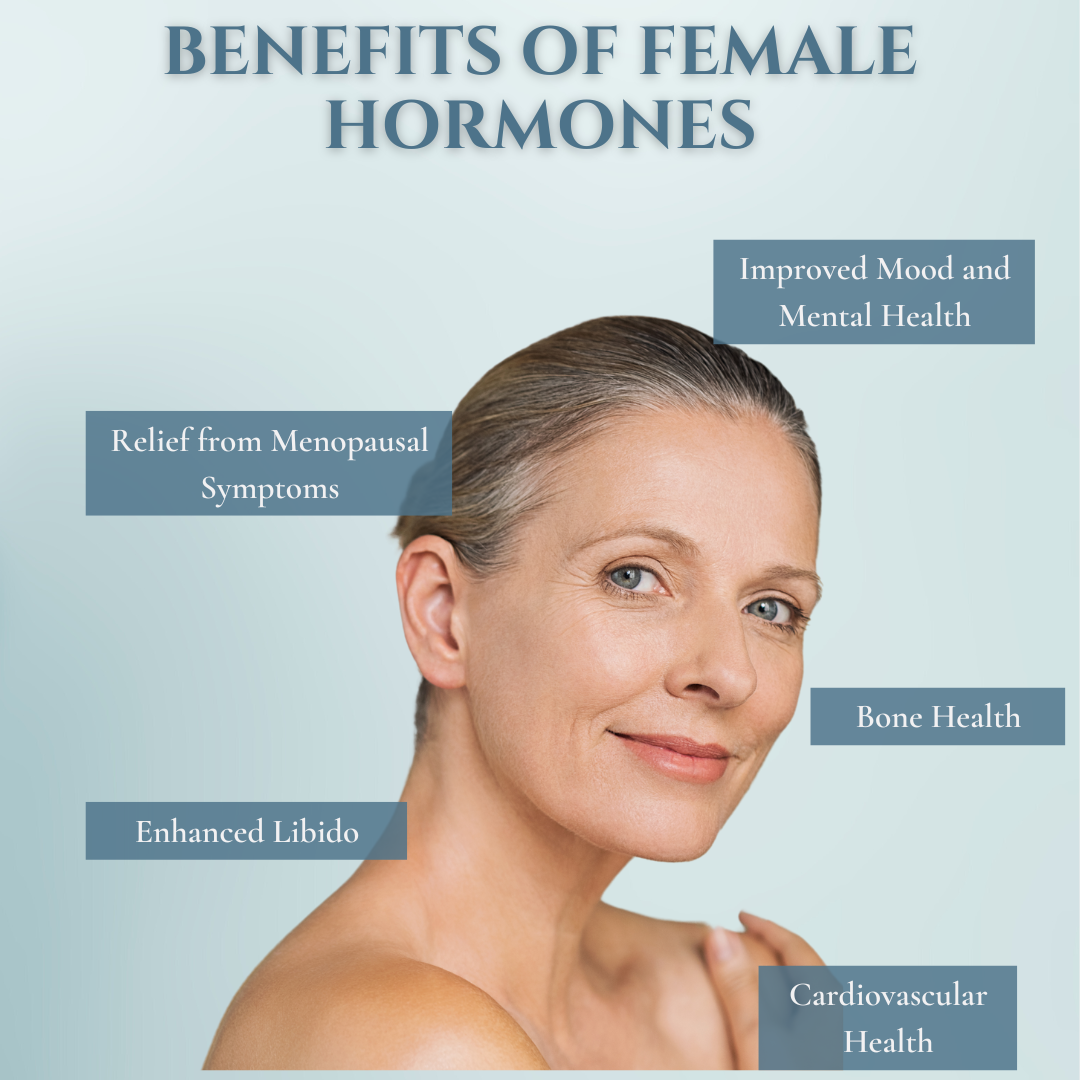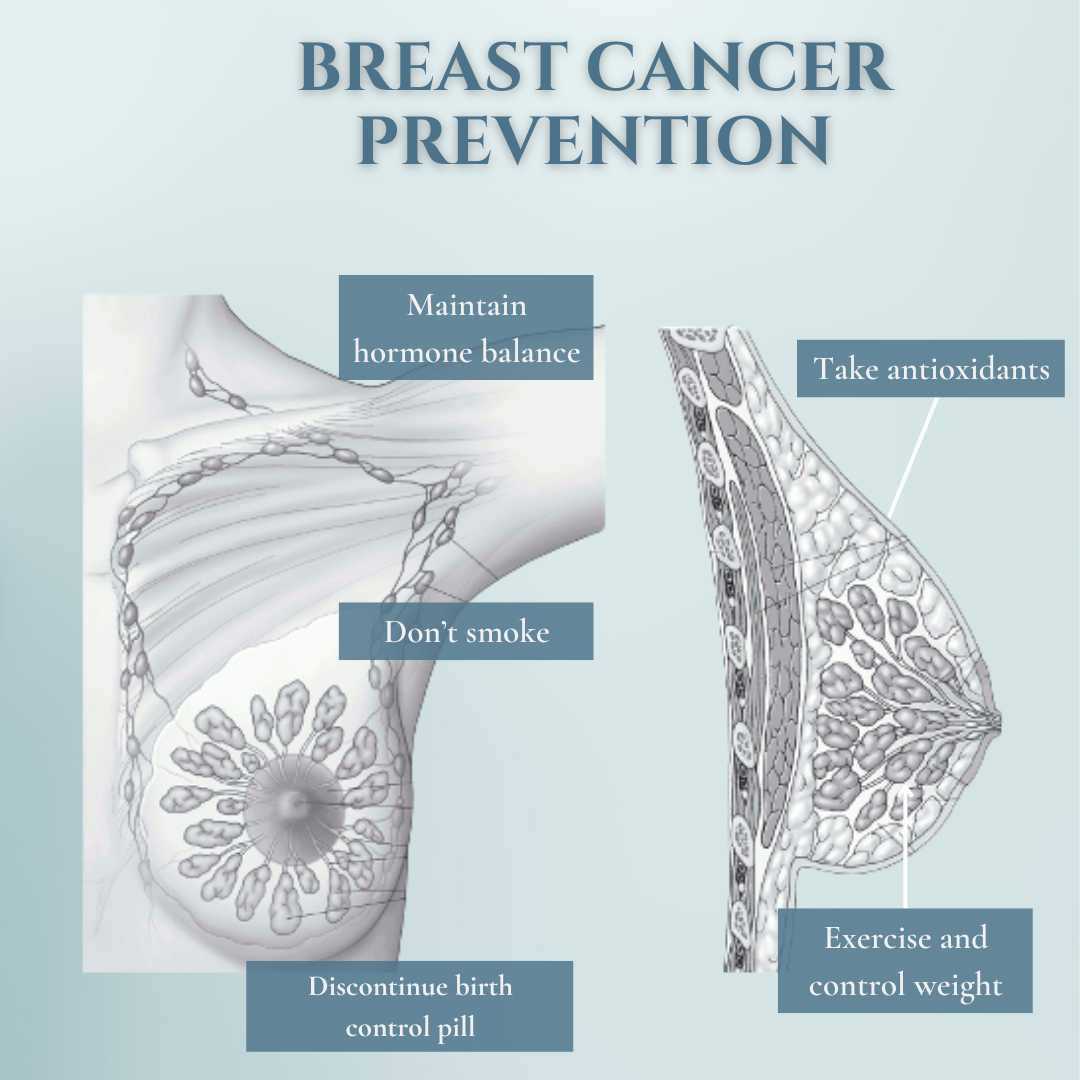WELLNESS
Female Bioidentical Hormone Replacement
You’re gaining weight even though you haven’t changed a thing. You’re exhausted but can’t sleep. You snap at people you love. Your brain feels foggy. Your motivation has vanished. Periods are all over the place—or gone completely. You might be in perimenopause or menopause, and your hormones are driving the shift.
During this transition, progesterone and testosterone levels drop sharply, and estradiol swings wildly—causing hot flashes, anxiety, poor sleep, low libido, and memory issues. These aren’t just “normal aging” symptoms. They’re signals that your body needs support.
That’s where Bioidentical Hormone Replacement Therapy (BHRT) comes in. BHRT uses hormones that are chemically identical to the ones your body naturally produces, helping restore balance, energy, and mental clarity. And because hormones impact far more than just reproduction, this therapy supports your brain, bones, heart, metabolism, and mood.



Bio-Identical Hormone Replacement Therapy at Aesthetics Concierge of Texas
What’s Included in Your $199/Month BHRT Program
-
Personalized consultation with one of our expert providers to understand your symptoms, goals, and lifestyle
-
Comprehensive lab work to assess your hormone levels and guide a treatment plan tailored to your body’s needs
-
Ongoing monitoring with follow-up labs and check-ins to ensure your therapy stays safe and effective
-
Convenient hormone replacement options — choose in-office weekly injections or at-home prescriptions, including estriol, estradiol, progesterone, testosterone, DHEA, and pregnenolone, as clinically appropriate
Ready To Book An Appointment?
Ready to schedule your Initial Consultation with our Nurse Practitioners? Click on the link below!
Learn More About Female Bio-Identical Hormone Replacement Therapy
FEMALE HORMONES
Learn more about Female BHRT Dr. Peter Attia
Women’s sexual health, menopause, and hormone replacement therapy (HRT)
Learn from Dr. Rachel Rubin and Dr. Peter Attia.
Learn More About Hormone Replacement?
Female Bio-Identical Hormone Replacement Therapy (BHRT) involves the use of hormones that are structurally identical to the hormones naturally produced by a woman’s body. Natural Hormones are essential to healthy, vigorous and more youthful bodily function.
For optimal wellness, men and women must maintain a proper balance of the natural hormones:
-
Estrogen: Essential for heart, brain, skin, and bone health, estrogen declines by approximately 90% after menopause.
Estriol: a bioidentical estrogen that supports collagen and elastin production in the skin, while also promoting vaginal, urinary, and vascular health.
Progesterone: Critical for mood, bone, vascular, breast, and uterine health, progesterone levels drop by about 80% by age 40.
Testosterone: Supports libido, muscle mass, metabolism, brain function, mood, and bone health, with levels decreasing by 50% by age 50.
DHEA: a naturally occurring adrenal hormone that supports energy, libido, metabolic function, and hormonal balance, especially during perimenopause, menopause, and adrenal fatigue/stress.
Pregnenolone: is a neurosteroid and hormonal precursor that enhances cognitive clarity, memory, mood stability, and resilience to stress by supporting the synthesis of other key hormones.
Vitamin D3K2: supports bone strength, immune health, and cardiovascular function by enhancing calcium absorption while directing it away from arteries and into bones.
Ready To Book An Appointment?
Ready to schedule your Initial Consultation with our Nurse Practitioners? Click on the link below!
Types of Female Bio-Identical Hormones
Estrogen
Estrogen can alleviate common menopausal symptoms such as hot flashes, night sweats, and vaginal dryness, enhancing overall comfort during this life stage and helps mitigate the bone loss that occurs during menopause, reducing the risk of fractures and osteoporosis.
WHAT ARE THE SIGNS OF ESTROGEN DEFICIENCY?
Estrogen plays a vital role in various physiological functions in women. Signs of estrogen deficiency may include:
Hot flashes
Night sweats
Vaginal dryness
Forgetfulness or mental fogginess
Mood change or recent onset of depression
Difficulty falling asleep
Sagging breasts and loss of breast fullness
Loss of skin radiance or quickly aging skin
Dry eyes
Lessened self image and attention to appearance
Weight gain
Increased joint or muscle pain
Scalp hair loss
Decreasing bladder control
Pain with sexual activity
Decreased sexual drive or sensuality
Increased anxiety
WHAT ARE THE SIGNS OF ESTROGEN EXCESS?
Estrogen levels can be influenced by factors like age, health conditions, and lifestyle. If someone suspects an imbalance, the signs of estrogen excess may include:
Nausea
Increased fluid retention
Uterine fibroids worsening or developmen
Weight gain, especially in hips
Worsening fibrocystic breasts
Increased breast and nipple tenderness
Pelvic cramps with or without bleeding
Headaches/migraines
Progesterone
During the phase of perimenopause, hormonal fluctuations become more pronounced, impacting various aspects of their well-being. Progesterone, a crucial hormone in the female reproductive system, plays a pivotal role in maintaining hormonal balance. Recognizing the signs of pre-menopausal progesterone deficiency is essential for understanding and addressing hormonal imbalances. Often used in combination with estrogen, progesterone helps balance the effects of estrogen and supports the uterine lining. Here are key indicators that may suggest a deficiency in progesterone levels during the pre-menopausal phase:
What are signs of Pre-menopausal progesterone deficiency?
PMS
Heavy and/or frequent periods
Lack of period or amenorrhea
Endometriosis or fibroids
Development of insomnia
Ovarian cysts
Sense of normalcy only during second week of cycle
Fibrocystic breasts
Anxiety, irritability, and nervousness
Spotting a few days before period
Infrequent period
Water retention
What are signs of Menopausal progesterone deficiency?
Insomnia
Anxiety, irritability, and nervousness
Increased hot flashes
Fibrocystic breasts
Water retention
Testosterone
Obtaining optimal female levels of testosterone improves mood, brain function, metabolism, and libido.
Testosterone reduces risks of breast cancer and osteoporosis.
What are signs of testosterone deficiency?
- Decreased sex drive
- Loss of muscle tone or muscle mass
- Indecisiveness
- Decreased memory or foggy brain
- Loss of sense of security
- Lack of energy and stamina
- Decreased exercise tolerance
- Decreased armpit, pubic, or body hair
- Slowed metabolism
What are signs of testosterone excess?
- More irritable
- Agitation and anger
- Scalp hair loss or unwanted hair growth (hirsutism)
- Weight gain
- Acne
ALL ABOUT THE THYROID
T4 is the precursor thyroid hormone; HPT axis feedback from T4 levels (increased TSH when low).
T3 is the active thyroid hormone.
Symptoms of low thyroid
Fatigue
Weight gain
Loss of the outer half of eyebrows and unexpected scalp hair loss
Body temperature below 98.2
Cold hands and feet, intolerance to cold
Dry skin, weak or ridged nails
Decreased memory and concentration
Puffy eyes and swollen eyelids
Low blood pressure
Depressed mood
Muscle weakness
Headache
Fluid retention
Symptoms of high thyroid
Tachycardia
Heart palpitations
Nervousness/anxiety
Insomnia
Weight loss
Subclinical hypothyroidism
- Subclinical hypothyroidism associated with a 260% increase in the prevalence of heart disease, atherosclerosis, low metabolism, weight gain, increased auto immune diseases, more inflammatory and chronic pain, increased glandular cancers and cancer mortality
Why do we recommend Desiccated Thyroid vs. Synthroid/Levothryroxine
Synthroid is a brand name for levothyroxine, a synthetic (man-made) form of the thyroid hormone thyroxine, or T4. NP Thyroid, Armour Thyroid, and W.P Thyroid are brand names for a natural form of thyroid hormone. It is made from the dried thyroid glands of pigs. More than 15% of hypothyroid patients with a normal TSH on Levothyroxine feel hypothyroid. This happens less with patients on desiccated thyroid.
In studies comparing desiccated thyroid with Levothyroxine, patients on desiccated thyroid preferred desiccated thyroid over Levothyroxine.
Levothyroxine contains only T4, while T3 is the active hormone. The body makes 85% T4 and 15% T3. Conventional endocrinologists hope the body goes into over-drive to convert the T4 to T3, but in many patients that doesn’t happen.
Rules when you have your labs drawn:
In AM, fasting
If receiving transdermal, do not apply hormones with hand or to arm of blood draw for 3 days prior to lab draw
Transdermal: draw 24 h after last application
Sub-Q: draw AM of day 3-4 (before next injection)
No Biotin for more than 3 days prior to draw
NO AM meds until after lab draw (including thyroid medication …wait to take all meds until after draw)
Tips for Breast Cancer Prevention
- Maintain hormone balance before and after menopause (use bioidentical hormones)
- Discontinue birth control pills (use alternative birth control). Long-term use of oral birth control has been associated with a 20% increased risk of breast cancer (when off the pill for five years, risks return to normal)
- Exercise and Control Weight:
- Cancer-protective estrogen metabolism with exercise
- Hormone balance
- Immune stimulation
- Weight control
- Stress reduction
- East daily serving of cruciferous vegetables and take antioxidants (Vitamin C, CoEnzyme Q10, Glutathione, Resveratrol)
- Take 2-4 grams daily of high-quality fish oil
- Reduce saturated fats, eliminate trans-fats
- Don’t smoke
- Maintain Vitamin D3 levels of 65-100 in serum

Female Bioidentical Hormone Replacement FAQ
In this FAQ section, we will answer some common questions about Female BioIdentical Hormone replacement. Whether you’re considering this treatment or just curious about the procedure, this section will provide you with valuable information to help you make an informed decision.
Please reach us at info@ra-tx.com if you cannot find an answer to your question.
What is the goal of bioidentical hormones replacement?
The goal of BHRT is maintain optimal physiologic levels in order to improve quality of life. Note: we do NOT replace hormones to supra-physiologic levels.
How do I know if I need Female Bio-Identical Hormone Therapy (BHRT)?
BHRT may be considered if you are experiencing symptoms of hormonal imbalance, such as fatigue, mood swings, weight gain, changes in libido, skin, or body composition, or hot flashes. Consultation with a healthcare provider, including hormone level testing, can help determine if BHRT is suitable for your individual needs.
Is BHRT considered safe?
Bio-Identical Hormones are derived from plant sources and designed to replicate the molecular structure of hormones naturally produced by the body. When prescribed and monitored by qualified healthcare professionals, BHRT is generally considered not only safe but protective of bone, brain, and heart health. It’s crucial to discuss your health history, concerns, and undergo regular monitoring during treatment.
Are there risks with taking bioidentical hormones?
Extensive clinical research has shown that bioidentical hormone replacement therapy (BHRT) does not increase the risk of major health conditions when compared to placebo. Specifically, studies have found no increased risk of:
-
Breast cancer
-
Heart disease
-
Stroke
-
Colorectal cancer
-
Hip fractures
-
Dementia
-
All-cause mortality
BHRT, when properly monitored and individualized, is considered a safe and effective option for managing hormone-related symptoms and supporting long-term health.
What are the benefits of BHRT?
Bioidentical Hormone Replacement Therapy (BHRT) helps relieve common symptoms of hormone imbalance, such as hot flashes, night sweats, mood swings, sleep issues, weight gain, and low libido. Beyond symptom relief, BHRT supports improved energy, mental clarity, sexual wellness, and preservation of muscle and bone mass. It also plays a long-term role in reducing the risk of osteoporosis, dementia, recurrent urinary tract infections, and cardiovascular disease.
Ready To Book An Appointment?
Ready to schedule your Initial Consultation with our Nurse Practitioners? Click on the link below!
